Introduction
Cloud-based AI is revolutionizing the business landscape by combining the scalability of cloud computing with the advanced analytical capabilities of AI. From startups empowered by NVIDIA's Inception program to Enel's use of generative AI for IT service desk tickets, businesses are leveraging cloud AI to automate processes, enhance productivity, and drive growth. In this article, we will explore the benefits of merging cloud AI with cloud computing, the steps for developing a cloud AI strategy, and the role of predictive analytics and data-driven decision making.
We will also address the challenges and ethical considerations in cloud AI adoption and showcase successful case studies of cloud AI integration in small businesses and startups. Finally, we will discuss future trends and predictions in cloud AI for business, highlighting the transformative potential of this technology. Stay tuned to learn how cloud AI can propel your organization to new heights of innovation and success.
Understanding Cloud Artificial Intelligence (AI) and Its Potential in Business
Cloud-based AI is transforming the way businesses operate by merging cloud computing's scalability with Ai's advanced analytical capabilities. Companies like NVIDIA are empowering startups with their Inception program, accelerating growth with state-of-the-art technology and investor connections. Meanwhile, Enel's digital platform leverages generative AI for IT service desk tickets, cutting resolution times dramatically and automating a significant percentage of cases.
Additionally, Zara's integration of AI throughout its supply chain showcases the extensive application of this technology in retail, optimizing inventory levels and enhancing customer experience.
Victor Jakubiuk of Ampere Computing emphasizes the need for a cloud-native approach to AI infrastructure, highlighting benefits such as cost-efficiency, flexibility, and enhanced security. As AI is inherently cloud-born, leveraging cloud services is crucial for harnessing its full potential. Moreover, businesses must effectively manage their data, migrating it to the cloud to unlock AI's capabilities.
The value of cloud AI is clear across IT productivity, business innovation, and advanced technologies, which can further enhance cloud ROI. It is essential for companies to prioritize their migration to the cloud, balancing investments with the expected benefits, especially as generative AI continues to evolve. In doing so, they can overcome common hurdles in cloud programs and achieve transformative value, driving business success in a highly competitive landscape.
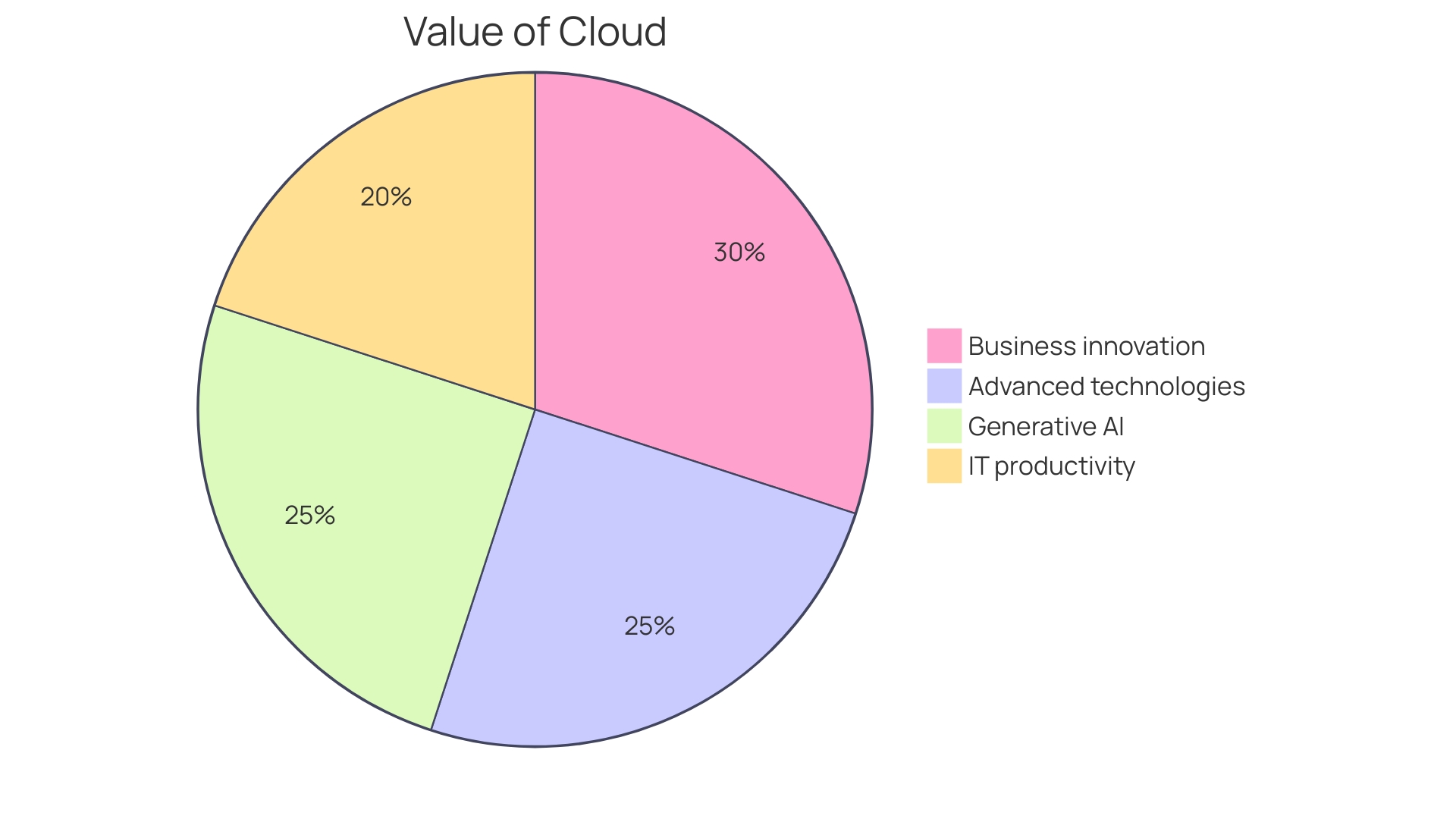
Developing a Cloud AI Strategy for Business Growth
To effectively capitalize on cloud AI technology, small businesses and startups in Australia must craft an astute strategy tailored to their unique needs. Here's a succinct guide:
-
Business Needs and AI Opportunities: Begin by pinpointing specific areas where AI can add significant value. This could mean automating mundane tasks, elevating customer service, or streamlining operations. For instance, European travel provider Holiday Extras leveraged AI to manage marketing across diverse languages and enhance data literacy among employees.
-
Data Source Identification: Ascertain which data sources can fuel AI insights. This could range from customer interactions to sales figures or social media engagement. A case in point is Summer Health, which uses AI to transform pediatric care by streamlining medical visit notes, thus reducing administrative burdens.
-
Selecting a Cloud AI Platform: Choose a platform that aligns with your business's scalability, user-friendliness, integration options, and budget. For startups, programs like NVIDIA Inception offer vital technological support and investment connections, demonstrating the importance of selecting a platform that supports growth at every stage.
-
Data Preparation: Prior to utilizing an AI platform, ensure your data is pristine and well-organized. The accuracy of AI predictions hinges on the quality of input data.
-
AI Model Development: With your data ready, use the platform to craft AI models that serve your business objectives. Training and refining these models will enhance their performance.
-
Deployment and Monitoring: Introduce the trained models into your operations and vigilantly track their efficacy. Regular assessments and tweaks will help you reap the maximum benefits from cloud AI.
By adopting a structured approach to cloud AI, businesses can not only meet current challenges but also build a robust foundation for future growth. As AI continues to intertwine with the fabric of work, organizations that skillfully navigate this landscape are poised to thrive.
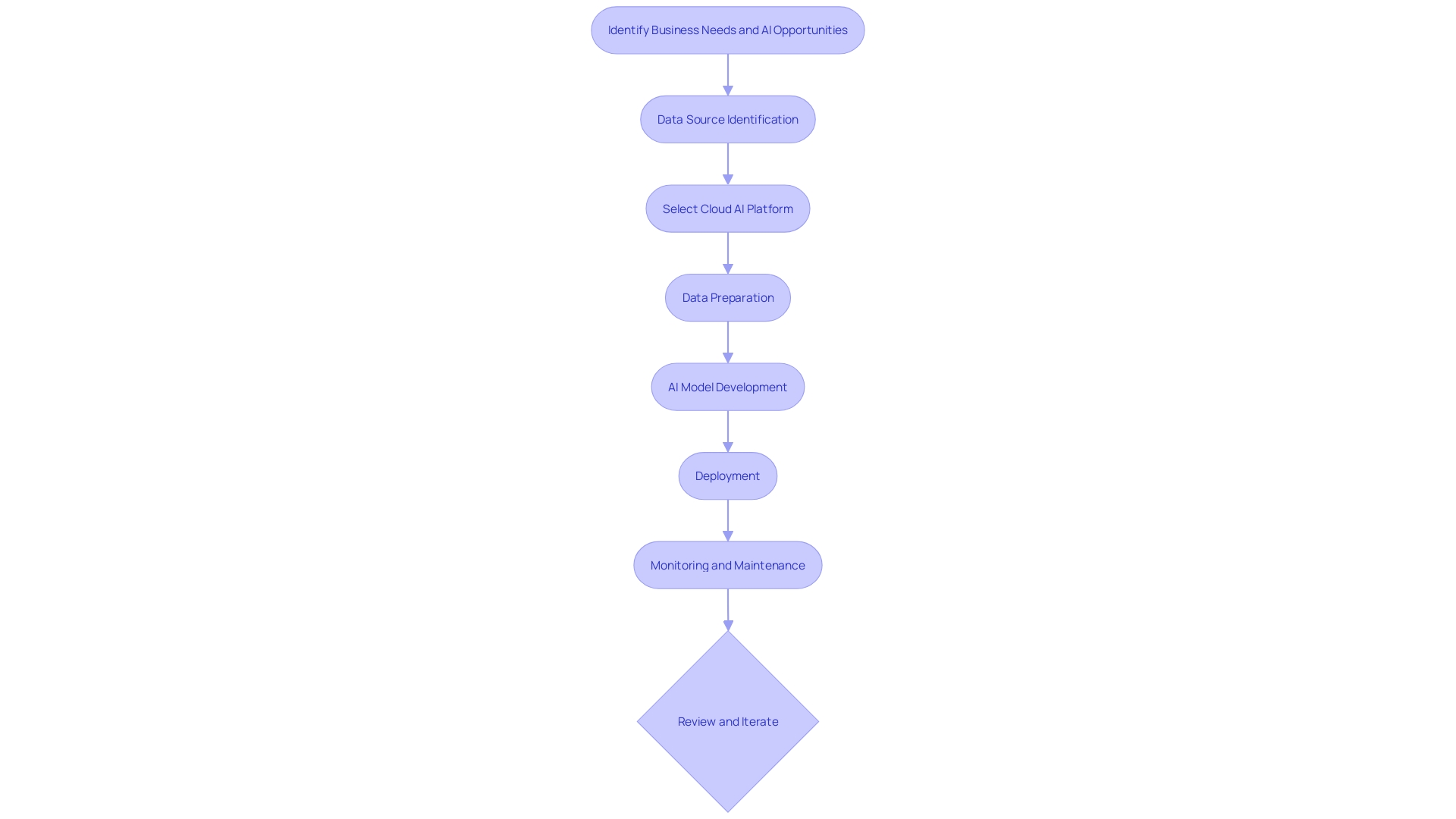
The Role of Cloud Computing in Cloud AI Implementation
The synergy between cloud computing and AI is transforming industries, offering scalable solutions for managing complex data and processing needs. Take ICL, a global manufacturing and mining corporation, which faced the challenge of monitoring industrial equipment under harsh conditions. Traditionally relying on manual inspections, ICL's adoption of cloud AI solutions enabled them to monitor equipment remotely, thereby enhancing efficiency and reducing downtime.
Similarly, in the dairy industry, the health of Holstein cows is crucial for milk production. Cloud AI assists in interpreting external health indicators, optimizing the assessment of thousands of cows, which would be impractical for veterinarians to do individually.
Amidst the demand for such innovative solutions, companies like Ampere Computing are addressing server shortages and operational costs by developing cloud-native processors that are not only high-performing and scalable but also energy-efficient, addressing environmental concerns. As cloud computing provides a robust platform for data science, the role of data scientists has expanded to include a myriad of stakeholders across various industries. They are turning 'Big Data' into valuable insights, thanks to the cloud's capabilities to manage and process data that is too vast for conventional systems.
Understanding audience interaction with content and services is crucial for businesses, as evidenced by the analysis of data sets combining user profiles, statistics, and market research. Insights gained from such data are invaluable for content performance measurement and service improvement.
In practice, the cost implications of cloud AI solutions must be carefully considered. Project scoping is essential to understand end-user needs and the frequency of tool usage, which directly impacts the cost analysis. As of October 2023, these considerations remain a critical factor in the successful implementation of cloud AI, ensuring businesses can leverage the power of the cloud to meet their specific needs efficiently and cost-effectively.
Benefits of Merging Cloud AI with Cloud Computing
Merging cloud AI with cloud computing is a transformative strategy that offers businesses a myriad of advantages. Harnessing the computational power of the cloud, organizations are achieving accelerated and more precise AI processing. This translates to enhanced performance and productivity, particularly when dealing with complex algorithms and data-intensive tasks.
Economically, cloud AI presents a cost-effective solution by obviating the need for expensive hardware and infrastructure. Businesses can utilize cloud resources on a pay-as-you-go basis, which significantly reduces upfront costs and facilitates a more economical approach to AI deployment.
The scalability and flexibility of cloud AI are also noteworthy. Enterprises can effortlessly adjust their AI capabilities to suit fluctuating demands, such as handling larger volumes of data or enhancing AI functionalities, allowing them to stay agile in response to evolving market needs.
Accessibility is another crucial benefit; with cloud AI, businesses can tap into AI capabilities from any location at any time, provided they have an internet connection. This level of accessibility ensures that businesses can utilize AI technologies without being hampered by geographic barriers.
Lastly, the adoption of cloud AI serves as a catalyst for innovation and can be a source of competitive advantage. AI-driven applications and solutions have the potential to revolutionize business processes, elevate customer experiences, and open up new avenues for growth. As generative AI continues to evolve, its integration with cloud technology is set to transform ROI dynamics, offering organizations new strategies for maximizing their cloud investments and migration pathways.
This evolution underscores the need for businesses to not only adopt cloud AI but to do so with a strategic approach that aligns with their broader digital transformation goals.
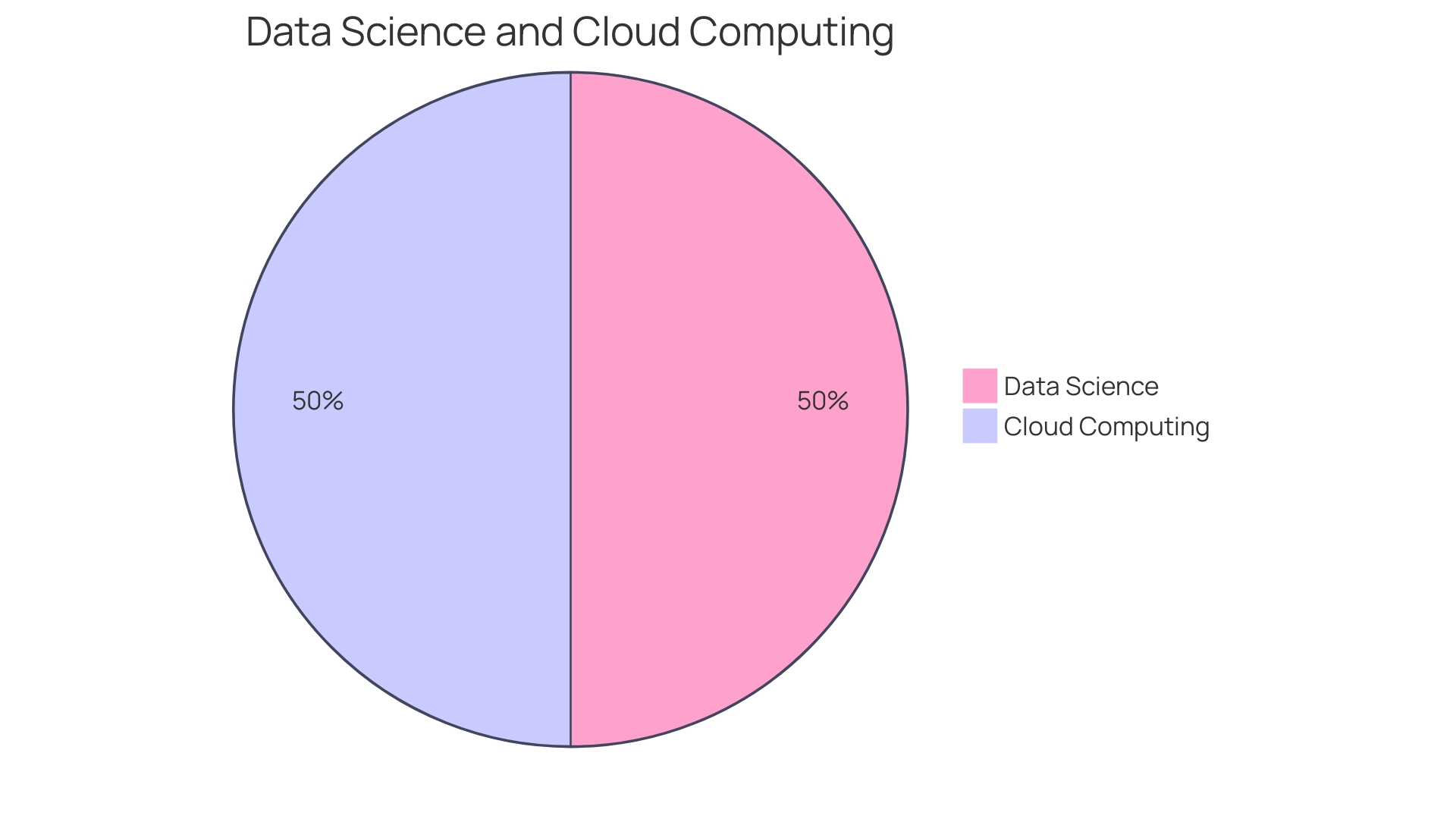
Automating Processes and Enhancing Productivity with Cloud AI
Harnessing cloud Ai's potential, businesses are now advancing their automation capabilities, which not only escalates productivity but also refines quality and decision-making. For instance, in the healthcare sector, companies like Summer Health are revolutionizing pediatric care by simplifying the medical visit note process. Through the integration of generative AI, pediatricians can now efficiently convert their observations into comprehensive summaries, dramatically reducing time spent on administrative tasks from over 50% to a mere fraction, thereby mitigating doctor burnout and expediting the communication with parents.
Similarly, Delivery Hero tackled the challenge of account lockouts across its massive global workforce by automating the recovery process, cutting down the average resolution time and freeing up thousands of hours for productive work.
Moreover, the strategic application of AI in customer service has already begun to shift the paradigm. As pointed out by the Zendesk Customer Experience Trends report, generative AI is setting a new standard for operational efficiency and personalization, a trend that startups can leverage to gain a competitive edge. AI productivity tools, ranging from smart assistants to predictive coding algorithms, are streamlining tasks and enriching the workplace with innovative solutions for efficiency.
The transformative power of AI is also visible in the way it mines data for actionable insights, as seen in the IT service delivery team at Delivery Hero. This approach leverages real-time analytics to bolster product design and processes, addressing the complexities of capacity and change.
In the realm of content performance, the use of AI to analyze interaction data is proving invaluable. It not only helps in understanding the audience's engagement with content but also fosters the development of improved services based on user interactions. Tsavo's categorization of companies into those fully automating roles and those enhancing them with AI, demonstrates the varying strategies organizations can adopt.
To encapsulate, the strategic deployment of cloud AI is pivotal in automating repetitive tasks, enhancing decision-making accuracy, and providing real-time insights. By learning from case studies like Summer Health and Delivery Hero, businesses can streamline operations and propel their productivity to new heights.
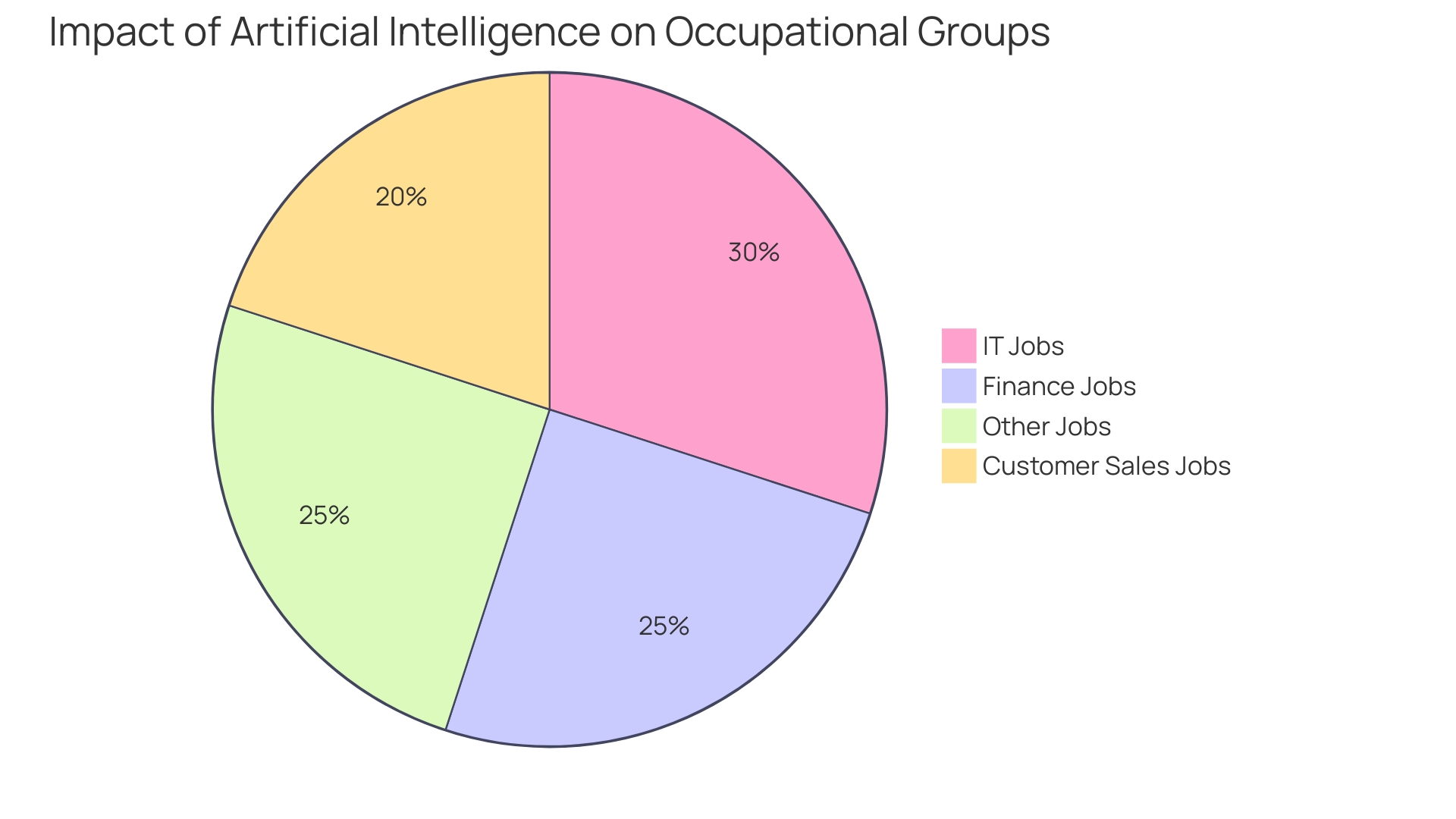
Predictive Analytics and Data-Driven Decision Making
Harnessing the capabilities of predictive analytics and data-driven decision-making is pivotal in crafting a leading-edge cloud AI strategy. This approach not only bolsters a company's competitive edge but also equips it with the foresight to swiftly roll out marketing initiatives or product launches. Predictive analytics employs sophisticated AI algorithms to sift through historical data, discern patterns, and forecast future events, providing actionable insights into customer behavior, market dynamics, and organizational performance.
In the realm of big data, machine learning and artificial intelligence are indispensable for predicting future outcomes and discerning trends, enabling organizations to anticipate market shifts and customer needs adeptly. By analyzing vast datasets beyond the scope of manual analysis, businesses can unveil new opportunities in customer demographics and purchasing patterns, while also preemptively identifying and mitigating potential threats.
Wangui McKelvey highlights the importance of preparing data infrastructure for AI implementation, stating that data is the cornerstone of AI, and understanding the insights derived from AI-powered data analytics is crucial for maintaining a competitive advantage. As organizations increasingly regard their data as a strategic asset, integrating it across a unified platform facilitates business empowerment through AI.
Moreover, statistics underscore the growing investment in machine learning and AI, with a McKinsey report indicating that 91.5% of companies are continually investing in these areas. Although the expectation might be that machine learning reduces operational costs, the reality is that it primarily boosts revenue, with 80% of respondents reporting increased earnings.
As we move towards 2024, the big data industry is gaining momentum, and insights from industry experts suggest a thrilling year ahead, as per insideAI News’s annual technology predictions. Yemi Oshinnaiye, CIO at the US Transportation Security Administration, underscores the significance of adopting large language models (LLMs) for enhanced customer engagement, signifying an industry-wide recognition of the transformative potential of AI technologies.
In sum, the interplay of predictive analytics and data-driven decision-making forms the backbone of a robust cloud AI strategy, enabling businesses to navigate and lead in an increasingly data-centric world.
Implementing Cloud AI in Your Organization: Steps and Considerations
When introducing cloud AI into your organization, a structured approach is paramount for success. Begin by establishing clear goals, pinpointing the most impactful use cases for cloud AI to enhance your business operations. Developing a comprehensive data strategy is next, ensuring secure and compliant data collection, storage, and management processes.
Choosing the appropriate cloud AI solution is critical, with careful evaluation of scalability, integration, cost, and support to meet your business and technical needs. Once selected, data cleansing and preparation is vital for high-quality, accurate AI model training.
Training AI models with this prepared data is an iterative process, requiring adjustments to align with specific business requirements. Following training, these models must be seamlessly deployed and integrated into existing systems, with thorough testing to ensure minimal operational disruption.
Lastly, ongoing monitoring and optimization of cloud AI models are essential to maintain performance and leverage the latest technological advancements. For instance, Enel's implementation of generative AI for IT service desk tickets resulted in a case resolution time drop from one day to under two minutes. Similarly, the BMW Group's reliance on data-driven decision-making has increased the demand for data scientists and ML engineers to build models that enhance business process quality and efficiency.
Moreover, insights from Ipsos' survey on AI initiatives reveal that a well-defined AI roadmap and adherence to best practices significantly predict successful outcomes. This highlights the importance of continuous improvement and adapting to new opportunities in the AI landscape, as evidenced by organizations like NVIDIA Inception and the BMW Group, which champion innovation and data-centric strategies.
In the broader industry context, the impact of AI and cloud technologies on business efficiency is expected to be substantial. According to a report, 81% of surveyed companies anticipate AI to improve efficiency in their industry by at least 25% within two years, with many predicting even greater gains.
Adopting cloud AI is not just about technology deployment; it's about transforming business processes and opening new avenues for product development and revenue generation. As technological executives, including the CIO of the US Transportation Security Administration, recognize the importance of large language models (LLMs) for customer engagement, it's clear that cloud AI is set to become a standard in achieving business agility and competitive advantage.
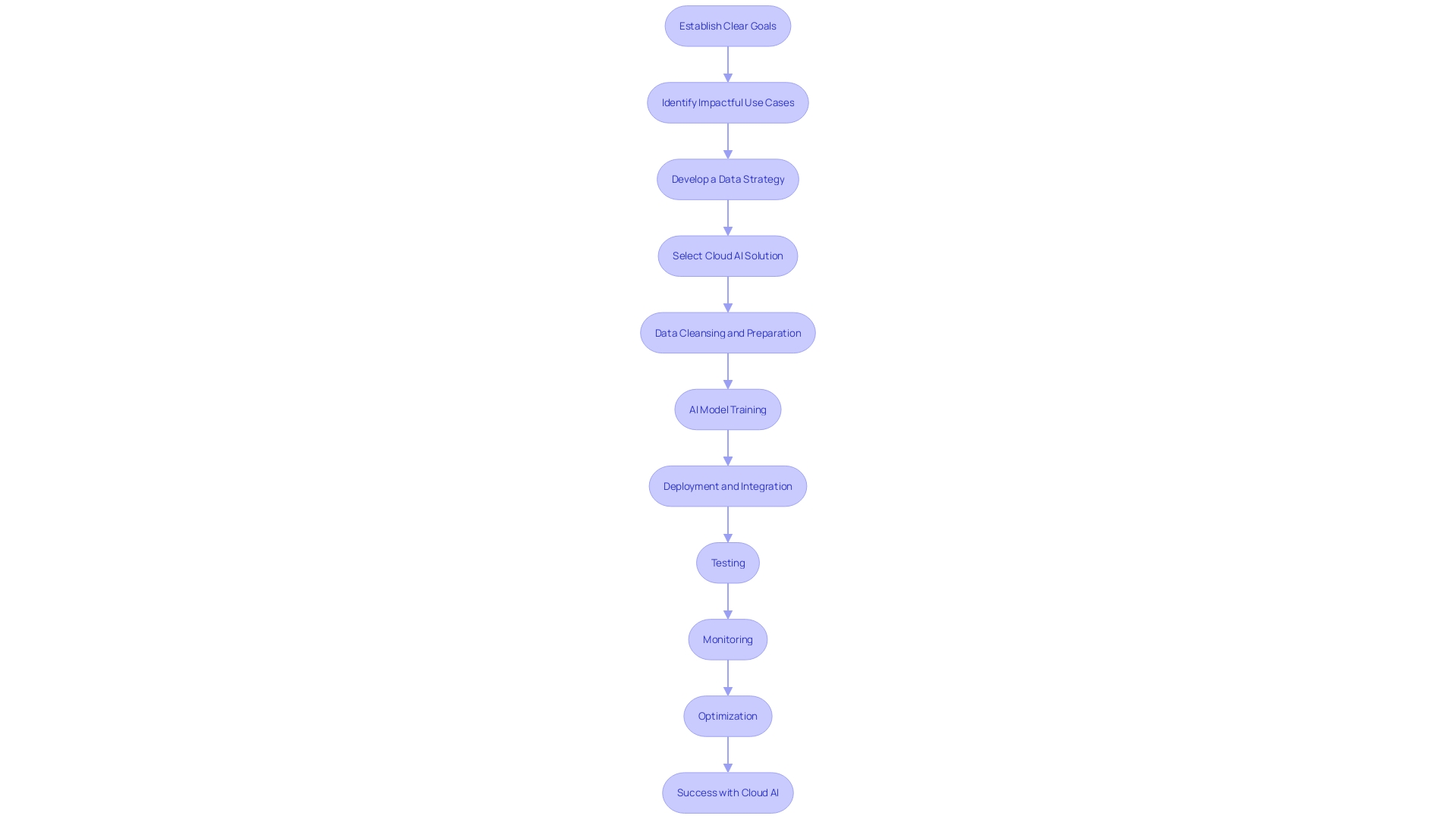
Addressing Challenges and Ethical Considerations in Cloud AI Adoption
Adopting cloud AI solutions offers small businesses and startups in Australia a strategic opportunity to leap ahead technologically, but it's not without its challenges and ethical considerations.
-
Data Privacy and Security: As organizations utilize cloud AI to process and analyze substantial data volumes, they must prioritize data privacy and security. This is not just a best practice but a necessity, considering that 98% of organizations regard external privacy certifications as crucial in their purchasing decisions. With 94% of customers hesitant to engage with companies that don't sufficiently protect their data, businesses are driven to comply with data protection regulations and establish robust security frameworks.
-
Bias and Fairness: The specter of bias in AI is a significant risk, particularly if algorithms are trained on skewed datasets. To combat this, businesses must rigorously evaluate their AI models for fairness and impartiality, thus preventing any form of discrimination that could arise from biased decision-making processes.
-
Transparency and Explainability: With Ai's intrinsic complexity, there's a pressing need for clarity and intelligibility in AI operations. This transparency not only fosters trust among stakeholders but also ensures that AI-driven decisions are comprehensible and can be accounted for, which is crucial for maintaining ethical standards.
-
Ethical Use of AI: The ethical deployment of AI is paramount. It is essential for businesses to commit to using AI responsibly, avoiding any applications that could be deemed harmful, upholding transparency in data utilization, and respecting user privacy.
By conscientiously addressing these pivotal challenges and ethical concerns, businesses can mitigate risks and cultivate a foundation of trust in their cloud AI initiatives. Moreover, they can leverage Ai's potential to enhance productivity, collaboration, and data-centric strategies, fundamentally reshaping their digital transformation journey.
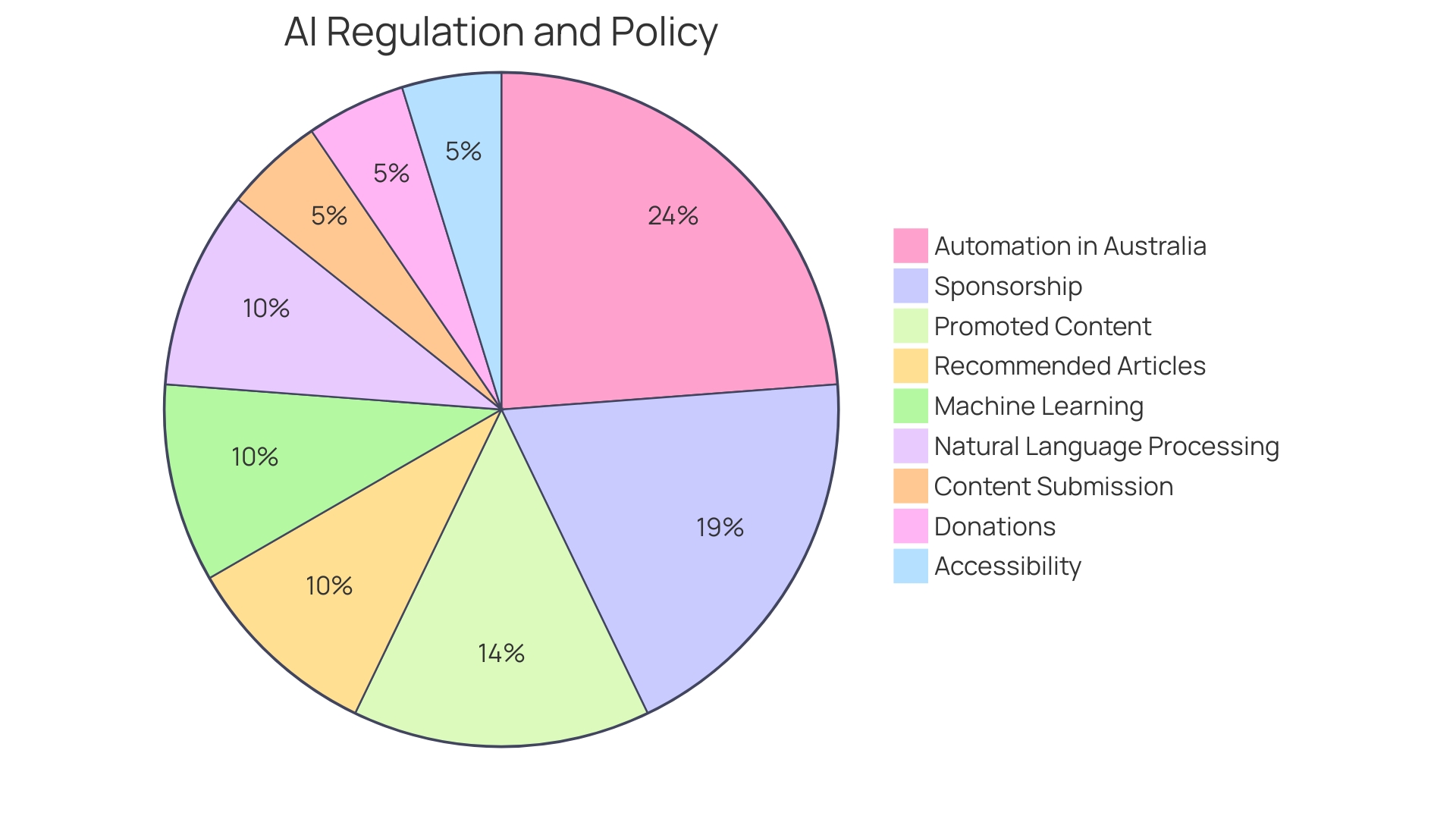
Case Studies: Successful Integration of Cloud AI in Small Businesses and Startups
In Australia, small businesses and startups are increasingly turning to cloud AI to transform their operations and gain a competitive edge. For instance, XYZ E-commerce utilized cloud AI to revolutionize their customer experience by providing personalized product recommendations. By meticulously analyzing customer data and shopping habits, they crafted targeted suggestions that not only boosted sales but also significantly enhanced customer satisfaction.
Similarly, ABC Healthcare embraced cloud AI to revolutionize their diagnostic processes. The automation of medical image analysis through AI led to expedited, more precise diagnoses, which in turn reduced report turnaround times and markedly improved patient outcomes.
These examples underscore the vast potential of cloud AI to foster innovation and efficiency across varied industries. Particularly in the field of large language models, businesses encounter challenges such as the complexity of deployment and the immense data required to fine-tune these models. Despite these hurdles, the integration of cloud AI remains a powerful tool for enhancing business operations, as highlighted in the cases of XYZ E-commerce and ABC Healthcare.
Moreover, the advancements in cloud technologies and AI are creating a fertile ground for business transformation. Initiatives like NVIDIA Inception are instrumental in accelerating startups by offering state-of-the-art technology and resources, which are pivotal for companies aiming to leverage AI and cloud services. The program underscores the transformative impact of cloud AI on business innovation, IT productivity, and the implementation of advanced technologies.
As cloud AI continues to evolve, it offers a wealth of opportunities for small businesses and startups to not only streamline their operations but also to devise novel solutions that address complex challenges. The ability to scale and adapt quickly is essential in today's dynamic business environment, and cloud AI is proving to be an invaluable asset for those looking to thrive and innovate.
Future Trends and Predictions in Cloud AI for Business
As businesses in Australia, particularly small enterprises and startups, propel towards a technology-driven future, the adoption and integration of cloud AI are set to redefine the competitive landscape. With the heightened interest in cloud AI, notable trends and predictions have emerged that are poised to shape business strategies and operations.
Firstly, the adoption rate of cloud AI is climbing, with companies increasingly recognizing its transformative potential. This trend is exemplified by programs like NVIDIA Inception, which accelerates startup growth by providing access to advanced technology and investment opportunities. Australian startups are likely to follow suit, leveraging cloud AI to foster innovation and growth.
Advancements in AI technologies are progressing at a staggering pace, enhancing the capabilities of cloud AI. Natural language processing, computer vision, and deep learning are areas witnessing rapid development, promising more sophisticated AI solutions for businesses. BMW Group’s reliance on data-driven decision-making and the growing demand for data scientists and machine learning engineers underscore the importance of advanced AI tools and compute resources to maintain a competitive edge.
The ethical considerations in AI usage are gaining prominence, with a focus on fairness, transparency, and accountability. As businesses strive to uphold ethical standards, regulations are expected to evolve, guiding responsible AI implementations.
Moreover, the integration of cloud AI with the Internet of Things (IoT) is unlocking new possibilities. This synergy enables businesses to utilize real-time data from IoT devices, enhancing automation and optimization. This integration aligns with the trend towards a decentralized database structure, as described in blockchain technology, which secures information-sharing and authentication transactions without central points of failure.
Statistics indicate a surge in companies employing machine learning and AI to enhance cloud infrastructure, reflecting a shift towards intelligent IT estate management. As generative AI continues to evolve, 2024 is anticipated to be a pivotal year in integrating this technology into everyday business operations.
Incentivizing innovation and setting methodical priorities are essential for harnessing AI’s full potential. As companies navigate the complexities of AI integration, strategic focus is imperative, as highlighted by experts who advocate for rewarding innovation and systematically analyzing the value and scalability of processes.
Staying informed of these trends allows businesses to proactively adapt their cloud AI strategies, ensuring they remain ahead in a rapidly advancing technological environment.
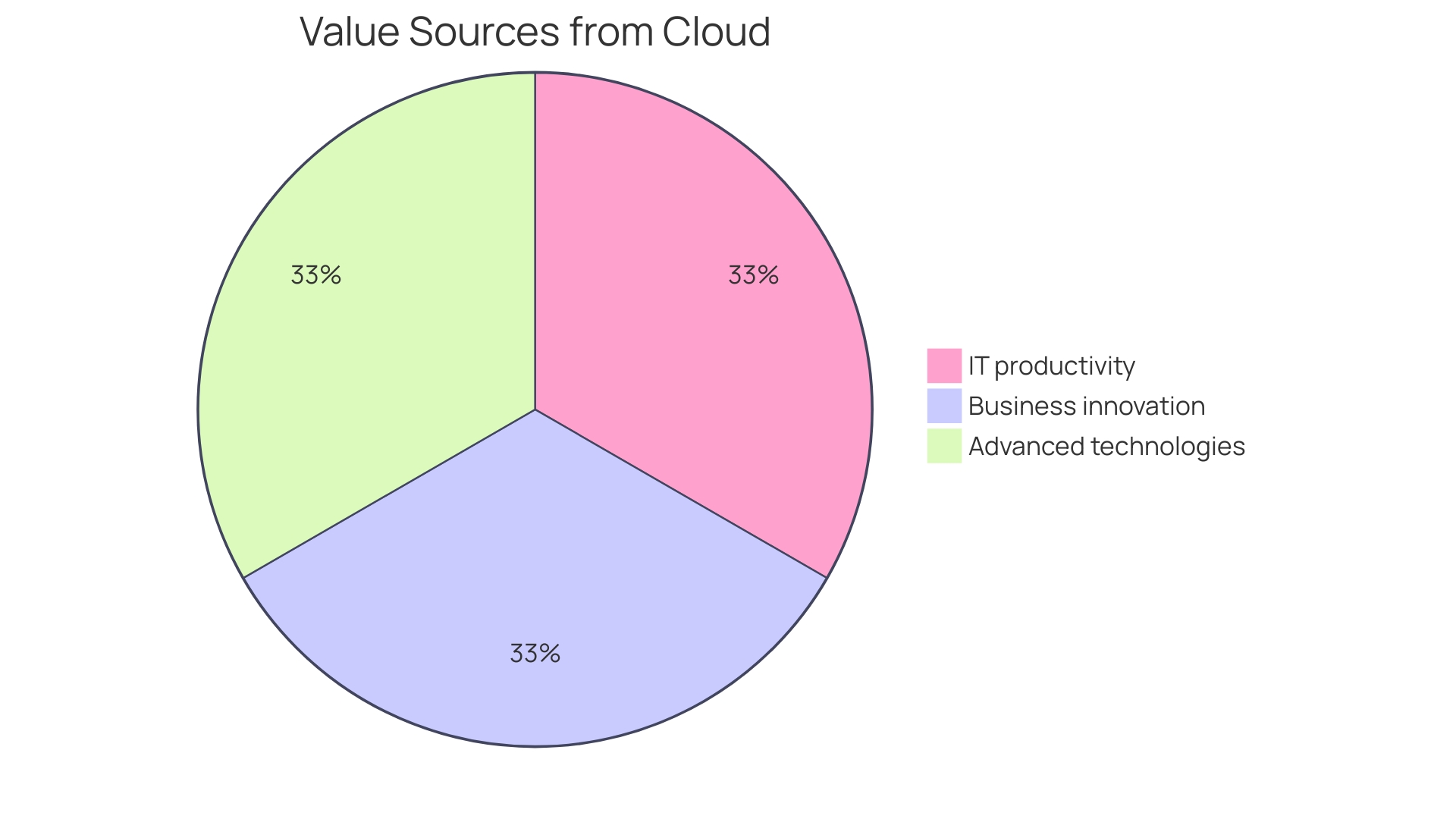
Conclusion
Cloud-based AI is revolutionizing businesses by merging the scalability of cloud computing with advanced analytical capabilities. This transformative strategy offers enhanced performance, cost-effectiveness, scalability, and accessibility. By adopting a structured approach to cloud AI, businesses can streamline operations, automate processes, and drive growth.
Developing a cloud AI strategy involves identifying areas where AI can add value, selecting a suitable platform, preparing and training AI models, and deploying them into operations. This approach propels productivity and effectively meets current challenges.
The synergy between cloud computing and AI transforms industries by offering scalable solutions for complex data and processing needs. Cloud AI enables remote equipment monitoring, optimized assessments, and valuable insights from user interactions. Cloud computing serves as a robust platform for data science, unlocking insights from big data.
Predictive analytics and data-driven decision making are crucial for a leading-edge cloud AI strategy. By analyzing historical data, businesses gain actionable insights into customer behavior and market dynamics. This interplay empowers businesses to navigate a data-centric world.
Implementing cloud AI requires a structured approach, including setting clear goals, developing a comprehensive data strategy, choosing the right solution, preparing and training models, and monitoring performance. By following best practices, businesses can leverage cloud AI to transform operations and gain a competitive edge.
Adopting cloud AI comes with challenges and ethical considerations. Prioritizing data privacy, addressing bias, ensuring transparency, and using AI responsibly are crucial. By addressing these concerns, businesses cultivate trust in their cloud AI initiatives.
Successful case studies demonstrate the transformative potential of cloud AI in small businesses and startups. Leveraging cloud AI revolutionizes customer experiences, streamlines processes, and fosters innovation across industries.
In conclusion, cloud-based AI revolutionizes businesses by merging cloud computing with advanced analytics. By adopting a structured approach, businesses streamline operations, automate processes, and drive growth. The synergy between cloud computing and AI offers enhanced performance and scalability.
Implementing cloud AI requires a structured approach, addressing challenges and ethical considerations. Successful case studies showcase the transformative potential of cloud AI. With cloud AI, businesses thrive in a technology-driven future.




